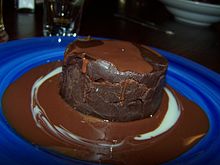Birthdays are a big deal in the modern West. A lot of milestones turn on birthdays, such as being old enough to drive, old enough to vote, old enough to drink, even old enough to compete in the Olympics. People in the US will sometimes celebrate their 21st birthday by going to a bar on the first day they are legally able to do so.
Birthdays were much less important in the Middle Ages. One did not celebrate with presents and birthday cake. (What? No cake? I hate to break it to you, but they didn't have chocolate either.)
There was a vague sense of the "stages of life" where one reached the "age of consent" at 7 and the "age of reason" at 14 (details varied a lot depending on who you asked), but no one tried to cling to age 39 or felt that once they were in their 50s things were different, or hummed the Simon and Garfunkel song about "how terribly strange to be seventy." (Much less the Beatles song about "when I'm 64." Paul McCartney has said he's changed it to 84 when he sings it now.)
When someone important died, it was often noted how old they had been, but since keeping track of the day or even the year of their birthday was not a big deal when they were little, one cannot expect this always to be accurate. Saint Anthony, father of monasticism, was said to reach 105. Maybe.
The only real birthday that medieval people celebrated with gusto was of course Christmas, the supposed birthday of Jesus. But even that celebration, as I have discussed elsewhere, was far outshone by Easter, which is far more significant theologically. (And medieval accounts of Jesus's incarnation and birth always looked forward toward his death—the myrrh given to him by magi was used in embalming.)
The real date that was remembered most vividly for an individual was not the day of their birth but the day of their death. Christians of course believe that Jesus died and rose again, and although ordinary people were not expected to rise again on this earth, the day of their death was a crucial one. One's death date became one's anniversary. People would establish what were called anniversaries in the Middle Ages, special prayers to be said on the same day of the year each year for the soul of their dear departed.
This is not unique to medieval Christianity, of course. Modern people will remember a loved one on the day that they died, and modern Judaism has certain rituals used to honor them on that day.
Every day of the year was celebrated as some saint's day, and which saint went with which day was determined almost always by the date on which the saint had died.
© C. Dale Brittain 2019
For more on medieval life stages and Christianity, see my new ebook, Positively Medieval: Life and Society in the Middle Ages.


No comments:
Post a Comment